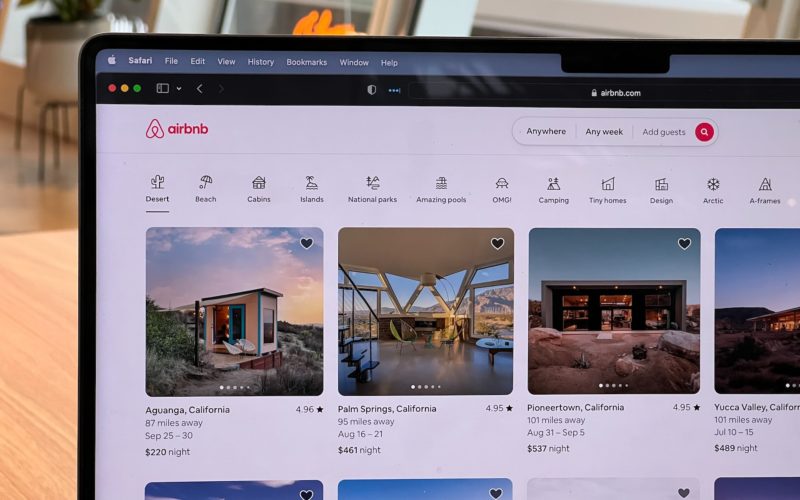When launching a new website, one of the most critical steps is choosing a domain registrar. A domain registrar is a company responsible for managing domain name reservations.
However, not all domain registrars offer the same services or at the same price points.
Factors to Consider When Choosing a Domain Registrar
Choosing a domain registrar involves several considerations that go far beyond just securing a domain name for your website.
This in-depth look at each key factor will provide you with the actionable knowledge needed to make the most informed decision possible.
Pricing and Renewal Rates
Arguably, one of the first things people look at when choosing a domain registrar is the price. But there’s more to it than meets the eye.
Initial Costs and Promotional Pricing
Teaser Rates: Some registrars offer introductory prices that are significantly lower than their standard rates. While these can be tempting, always check the renewal rates, as they can be much higher.
Package Deals: Occasionally, you’ll find package deals that include the domain name along with hosting or other services. These may or may not be cost-effective in the long run, depending on your needs.
Hidden Fees and Add-ons
- Domain Transfer Fees: If you ever decide to switch registrars, some companies charge a fee for this service.
- Redemption Fees: If your domain expires, some registrars charge a steep fee to recover it.
- WHOIS Privacy: Privacy protection keeps your personal information out of public records, but some registrars charge extra for this service.
Range of Available Domain Extensions
Having more options for domain extensions gives you more creative freedom and opportunities for branding.
TLDs and ccTLDs
- Popular TLDs: Most registrars offer popular extensions like .com, .org, and .net. However, check whether less common but relevant TLDs are also available.
- Country-Specific Extensions: If you’re targeting a particular country, you may need a country-code TLD (ccTLD) like .uk or .ca. Ensure your chosen registrar supports these.
New and Niche Extensions
- Trending Extensions: Newer extensions like .app, .blog, or .guru can make your website stand out.
- Industry-Specific Extensions: Some registrars offer domain extensions related to specific industries, such as .tech or .health.
Additional Services
Beyond just registering your domain name, see what other services and features the registrar offers.
Web Hosting Packages
- Integrated Services: Some registrars offer web hosting, simplifying the process of getting your site online.
- Discounted Bundles: Look for bundle deals that could save you money but assess if these services match your specific requirements.
Security Services
- SSL Certificates: An SSL certificate encrypts the data between your website and its visitors, and some registrars offer this either free or at an extra cost.
- DDoS Protection: Advanced security measures like DDoS protection can also be beneficial, particularly for larger or more sensitive websites.
Customer Support
Customer support is often an overlooked but crucial factor, especially for those less experienced in domain management.
Availability and Response Times
- 24/7 Support: Domain issues can occur at any time. Having access to 24/7 support can be a lifesaver.
- Ticketing System: A structured ticketing system can help track and resolve issues more efficiently.
Support Channels
- Live Chat: Ideal for quick and straightforward queries.
- Email and Tickets: Suitable for more complex issues that may require detailed explanations or attachments.
- Phone Support: Crucial for urgent issues where immediate verbal communication is essential.
By taking all these factors into account, you’ll be better equipped to choose a domain registrar that not only meets your immediate needs but also provides a robust platform for your website’s future growth.
Largest Domain Registrars in the World
The largest domain registrars in the world are with no doubt:
- GoDaddy: Known for its extensive advertising and large customer base.
- Namecheap: Lauded for its user-friendly interface and customer service.
- Bluehost: Popular among WordPress users for its seamless integration features.
User Reviews and Ratings
Trustworthiness: Check multiple review sites to get a comprehensive understanding of the registrar’s reputation.
Community Recommendations: Online forums and communities can provide insider information on customer satisfaction and performance.
Technical Considerations
A domain registrar should not only be economically viable but also technically reliable. Here’s what to consider on the technical side.
Domain Management Interface
Managing your domain(s) should be straightforward, not a labyrinthine nightmare. That’s why the design and functionality of a registrar’s domain management interface is a critical aspect to consider.
Ease of Use
- Intuitive Design: A well-designed, intuitive interface can make even complex tasks manageable for those who aren’t tech-savvy.
- Guided Processes: Some registrars offer step-by-step guides for common tasks like domain transfer, DNS setup, and renewal, making the process less daunting for newcomers.
- Helpful Tooltips: Look for interfaces that provide contextual help or tooltips, offering real-time guidance as you navigate through settings.
Bulk Actions Capability
- Mass Renewal: If you own multiple domains, the ability to renew them all at once can save you a significant amount of time.
- Bulk Transfer: Similarly, transferring multiple domains either to or from the registrar should be a straightforward process.
- Group Settings: Some registrars allow you to group domains and apply settings or features to the entire group at once, which is especially useful for businesses.
DNS Management
The Domain Name System (DNS) translates human-friendly domain names into IP addresses, acting as the phone book of the internet. DNS management is crucial for any website, affecting not only how easily you can make changes but also how quickly your site loads for visitors.
Customization Options
- Record Types: Ensure the registrar allows for a variety of DNS record types like A, CNAME, and MX, as well as TXT records for verification purposes.
- Zone File Access: For those with more advanced needs, direct access to your DNS zone file can be invaluable for custom configurations.
Speed and Responsiveness
- Propagation Time: A responsive DNS means that any changes you make (e.g., redirecting your domain to a new IP address) will propagate quickly across the internet.
- Anycast Network: Some registrars offer Anycast DNS, which routes visitor requests to the nearest server location, improving speed and reliability.
How to Optimize Web Page Size
Believe it or not, your choice of domain registrar can indirectly impact your website’s performance. This is particularly relevant when we talk about optimizing web page sizes. Smaller page sizes load faster, enhancing user experience and SEO rankings.
- Image Compression: Tools like TinyPNG or built-in CMS features can compress your images without a noticeable loss of quality.
- Code Minification: Minifying your HTML, CSS, and JavaScript files removes unnecessary spaces and comments, reducing their size.
- Caching: Utilize caching to store copies of frequently accessed web pages, reducing the load on your server and speeding up access for users.
A registrar with robust DNS management can complement these optimizations by ensuring quick DNS lookups, contributing to faster page load times overall.
By taking into account these aspects of domain and DNS management, along with page optimization techniques, you’ll be on your way to selecting a registrar that not only fits your needs but also sets you up for success in your online endeavors.
Endnote
Selecting the best domain registrar is a crucial yet often overlooked aspect of setting up a website. With factors ranging from cost and customer support to technical considerations like DNS management, the choice is far from straightforward.
Whether you’re drawn to one of the largest domain registrars in the world or a smaller service with a strong reputation, doing your research will pay dividends in the long run.
Factor in your specific needs and always look for opportunities to optimize, even in areas as seemingly simple as web page size. Your website’s success could very well start with the right domain registrar.












